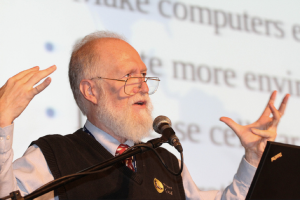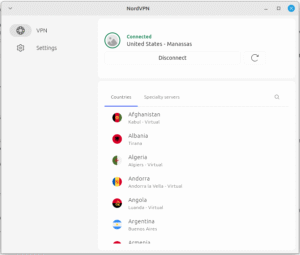Too often coverage of free/open source software news and commentary tends to focus on either developments and activities in North America or in Europe. While much of the news is made on these two continents, there’s a wider world out there where folks are doing some substantial things, and promoting FOSS in their own way in their own areas.
Periodically, we at FOSS Force will be looking at areas of the world which have been either overlooked or neglected in digital news coverage. Today we’ll start south of the U.S. border with Latin America — Mexico, along with Central and South America, for those of you keeping track on maps at home.
We start this with a quick overview of the region itself, and the canvas is a large one.

photo: campuspartybrasil, CC-BY-SA-2.0
“Central and South America is a very big region,” Hall said. “The spread of FOSS is uneven, as you might expect. Likewise, FOSS is more than just GNU/Linux, so the use of FOSS is also uneven.”
Who is the top FOSS user in this hemisphere south of the equator?
“Brazil continues to be the biggest user of FOSS, due to both laws and attitudes of its government,” he said. “However, in some places where FOSS was used, proprietary software has reasserted itself due to changes in management, usually management that is friendly to closed-source companies.”
According to Hall, issues with the National Security Agency “have awoken new interest in liberating their countries from dominance by U.S. firms, but whether that turns into action or just lip service is yet to be seen.”
Alex Acosta, a professor at the University of Chihuahua in Mexico, said that while a coordinated effort to promote FOSS in Mexico has not yet materialized, the efforts to instill FOSS in that country are still moving forward.
Acosta is the founder of the University of Chihuahua’s Master’s Degree program on Free Software, the first of its kind in Mexico and the region. He said that one of the ways FOSS advocates got the proverbial ball rolling in their area is the annual Festival GNU at the university. In 2008, Richard Stallman spoke at the event and the festival has grown since then.
On the adoption of FOSS in Mexico, Acosta says that computer users are still saddled with what they’re accustomed to, but there is a growing number of people adopting FOSS.
“It’s going slow but we think this will change in the near future. We’re seeing a larger participation in every event,” he said.
By “every event,” Acosta includes those in his own area –- events sponsored by Grupo Linux Chihuahua, or GULCH for short –- as well as other events around Mexico, like the largest in the country held annually at the University of Guadalajara in Puerto Vallarta. Additionally, inroads are being made as well by one of the most FOSS active colleges in the country, the Universidad Nacional Autonoma de Mexico (UNAM).
 In Managua, Nicaragua, preparations are underway for FUDCon, a Fedora users’ and developers’ conference coming up on October 23-25. Organizer Neville Cross said that the two-tiered event will be a place for developers to discuss and implement improvements, as well as having developers engage with the local community in the Nicaraguan capital.
In Managua, Nicaragua, preparations are underway for FUDCon, a Fedora users’ and developers’ conference coming up on October 23-25. Organizer Neville Cross said that the two-tiered event will be a place for developers to discuss and implement improvements, as well as having developers engage with the local community in the Nicaraguan capital.
“We expect a rich exchange of experiences and maybe setting some working agenda for the region,” Cross said. “This will be more one direction of communication helping to spread FOSS. We aim to be like the second step into FOSS” for those participating in the area. “The local community has spent so much effort in introductory talks, that we feel it will be good to aim a bit higher.”
Ubuntu Local Community (LoCo) leader Jose Antonio Rey of Peru said that the benefits of FOSS tend to draw people to it in his country.
“FOSS is not something most of the people know about,” he said. “I try to let my friends know about it, and they are always amazed by its benefits, especially when mentioning that it is ‘free as in beer.’ In general, when people hear about it and how it works they simply start loving it.”
As a member of Ubuntu’s LoCo Council, Rey contends that his work could be considered global, but he still acts locally to promote FOSS.
“Personally, I try to spread the word directly to my friends, as well as organizing events, trying to reach out to LUGs, and more,” he said. “On the other hand, I am also part of the Ubuntu LoCo Council, and help empower and give a hand when needed to local communities around the world.”
To include all that is happening in the countries south of the U.S. border would fill volumes. However, we at FOSS Force will keep up on what’s happening and report back to you when things transpire.









Another winner Mr. Free Software Guy. +1
The breadth and scope of FOSS/Linux is almost beyond
comprehension.